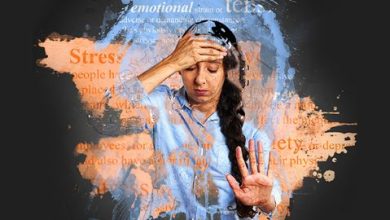
For Pakistan, where hundreds of women die each year from cervical cancer, most without early diagnosis or treatment, the HPV vaccine could be a game-changer in public health.
- Society suffers when religion transforms into a means of division instead of compassion, and culture is constricted to rigid dogma rather than a dynamic, evolving identity
By Prof. Dr. Abdullah Arijo
In Pakistan, the Human Papillomavirus (HPV) vaccine, scientifically proven to prevent cervical cancer, has become the subject of unfounded controversy. Myths and misinformation threaten to undo a medical advancement that could save thousands of lives. It is time to replace fear with facts.
Women’s health has often been marginalized in Pakistan, overshadowed by cultural taboos and social hesitation. The recent debate over the HPV vaccine is a stark reminder of how easily misinformation can overshadow science. What should be hailed as a breakthrough in preventive healthcare has instead been misinterpreted through moral and cultural lenses.
 Understanding the Vaccine
Understanding the Vaccine
HPV is a common virus transmitted through intimate contact, and certain strains can cause cervical cancer—one of the leading causes of cancer-related deaths among women worldwide. The HPV vaccine, developed after years of rigorous research, provides immunity against these high-risk strains, effectively preventing the onset of cancer in later life. The World Health Organization (WHO) and UNICEF classify the vaccine as safe, effective, and essential. It is routinely administered in more than 125 countries, where it has drastically reduced cervical cancer rates by as much as 70 percent in some populations.
Why the Controversy?
In Pakistan, however, the introduction of the HPV vaccine has met resistance, largely driven by misunderstanding. Some critics have incorrectly associated the vaccine with inappropriate behavior, assuming it promotes sexual activity. This notion is entirely baseless. The vaccine’s purpose is solely disease prevention, no different from immunizations against hepatitis, polio, or measles. The recommended age for vaccination, 9 to 14 years, has led some parents to hesitate, unaware that early immunization is necessary for immunity to develop before potential exposure. By delaying or denying vaccination, we risk leaving our daughters unprotected from a preventable, life-threatening disease.
The Evidence Is Overwhelming
Scientific studies across the world confirm the vaccine’s safety and efficacy. Millions of doses have been administered without any verified reports of serious adverse effects.
Countries such as Australia, the UK, and Rwanda have recorded dramatic declines in HPV infections and cervical cancer deaths. For Pakistan, where hundreds of women die each year from cervical cancer, most without early diagnosis or treatment, the HPV vaccine could be a game-changer in public health.
A Call for Awareness and Action
It is the shared responsibility of government institutions, healthcare professionals, educators, and the media to educate the public and counter misinformation.
Faith leaders and community influencers should also play their role in emphasizing that protecting health aligns with Islamic values, and the preservation of life is one of our faith’s highest principles.
Pakistan stands at a pivotal moment. We can either allow fear to dictate our actions or embrace scientific truth for the sake of our daughters and future generations. The HPV vaccine represents not controversy, but compassion and care, a chance to prevent suffering before it begins. Healthy women mean a stronger, healthier Pakistan. Let knowledge, not fear, shape our public health decisions.
In Pakistan, religion and culture are intended to serve as sources of unity, moral clarity, and social cohesion. However, they are frequently misappropriated, weaponized for political advantage, distorted to justify exclusion, or manipulated to stifle critical thought. This misuse does not reflect the true essence of our spiritual or cultural heritage; rather, it signals a crisis of awareness.
When religion transforms into a means of division instead of compassion, and culture is constricted to rigid dogma rather than a dynamic, evolving identity, society suffers. We witness this in the decline of civic values, the marginalization of minority groups, and the silencing of progressive voices. The outcome is not genuine piety or tradition, but rather stagnation.
There is an urgent need to cultivate awareness. Consequently, educational reform must prioritize critical thinking, ethical reasoning, and historical literacy. Furthermore, public discourse should challenge dogma with dignity and promote inclusive interpretations grounded in empathy and justice.
Community leadership must exemplify integrity, resisting the temptation to exploit sacred symbols for personal or political gain.
True religiosity uplifts the soul and serves humanity, while authentic culture celebrates diversity and adapts over time. Pakistan must reclaim these pillars, not as tools of control, but as foundations for a just, pluralistic, and enlightened society, which is possible by all ways and means.
Read: Gene Therapy Offers Hope for Thalassemia
_________________________
 Prof. Dr. Abdullah Arijo is a science writer and academic specializing in public health awareness, veterinary sciences, and biomedical ethics. He regularly contributes articles aimed at promoting evidence-based understanding of health and science in Pakistan.
Prof. Dr. Abdullah Arijo is a science writer and academic specializing in public health awareness, veterinary sciences, and biomedical ethics. He regularly contributes articles aimed at promoting evidence-based understanding of health and science in Pakistan.



